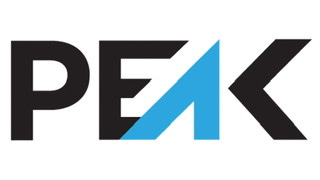What makes us different, legally
Adrienne Blanchard explains what makes Canada's regulatory framework unique (500 words, 3 min)
NPC Healthbiz Weekly is presented to you in cooperation with Peak Pharma Solutions
Companies bringing their therapies to Canada may be surprised by the unique mix of laws and voluntary codes of ethics that govern Canadian industry. Global codes of conduct at large pharma companies are often more restrictive than what local Canadian laws—and industry codes—require, according to Adrienne Blanchard of Blanchard Law, one of Canada’s foremost IP and regulatory lawyers in life sciences.
Speaking on the latest episode of the NPC Podcast, hosted by Peter Brenders, Blanchard (photo below) explained that “there are quite a few differences between the Canadian environment and the US environment” when it comes to “the manner in which companies can speak with various stakeholders, which includes healthcare professionals, patient groups, and other consultants.”
In most cases, the Canadian framework offers companies significantly more latitude in how they operate and promote.
One key difference is the lack of an Anti-Kickback Statute in Canada, Blanchard said, “which is a criminal statute limiting the activities between companies and physicians.” In the US, this statute prohibits “providing anything of value for services or items that are payable by the federal health care program.”
In Canada, “we do have some professional codes that govern healthcare professionals for obvious prohibitions like not accepting gifts from pharmaceutical companies. But they are not criminal statutes,” she said, “and they are not as restrictive as the anti-kickback laws are in the US.”
As a result, “there are more ways to engage HCPs in Canada,” Blanchard said. In the US, for example, companies may “engage a healthcare professional to do a speaker program based on their product to other HCPs, other doctors. In that case, from a legal perspective, the HCP is considered to be an agent of the company.”
“In Canada,” she said, “these are really scientific exchange programs. Companies can fund them, but at the end of the day, the HCP maintains responsibility for the content of their presentation. They aren’t the agent of the company, so presentations have to be balanced.”
The distinction means that in Canada, companies are expected to provide materials for such presentations reactively, at the request of HCPs, instead of giving them branded slides to use, Blanchard explained.
US regulations also tend to dictate the way companies may operate, which is not the case in Canada. Unlike US law, for example, Canada doesn’t require a “distinction between commercial and scientific roles within a company,” Blanchard said.
While industry codes of ethics may be more restrictive, Canadian law doesn’t “prescribe activities, such as how many members of the company can be at a stakeholder meeting,” she explained. “When it comes to granting,” she said, “even the industry code doesn’t get down to the level of governing internal company affairs.”
Looking to the future, Blanchard said she doesn’t “see a lot of the US system being adopted into Canada,” although we have seen Canada adopt policies similar to the EU, such as “on clinical trial transparency.”
“Where there are best practices out there, Canada is open to adopting them,” Blanchard said. “But policy will always be driven by unique-to-Canada interests.”
LISTEN NOW
Hear the whole story: In this week’s episode of the NPC Podcast, our host, Peter Brenders talks with Adrienne Blanchard, one of Canada’s foremost IP and regulatory lawyers in the life sciences, about the differences between US and Canadian healthcare laws, life sciences regulations, and rules around DTC advertising. The NPC Podcast is made possible in co-operation with Impres Pharma and features a series of conversations with pharma industry leaders for their takes on current events.
WEEK 08/03/21
Pfizer has started releasing results of its clinical trials in plain language, and has committed to also providing translated plain language summaries in Spanish, French, and German starting in 2022. The initiative, called Plain Language Study Results Summaries (PLSRS) aims to improve health literacy by making study results more accessible.
Celltrion Healthcare has announced that Regdanvimab (CT-P59), a monoclonal antibody treatment for Covid-19, has passed Health Canada screening. The drug will proceed to be reviewed as a New Drug Submission with flexibilities for designated Covid-19 drugs (NDS-CV).
Benlysta (belimumab), a monoclonal antibody developed by GlaxoSmithKline (GSK), has been approved in Canada for the treatment of active lupus nephritis (LN) in adult patients, an expansion of the indication. The drug has been available in Canada since 2011 as a treatment for systemic lupus erythematosus (SLE) and is the first and only biologic approved for the treatment of LN and SLE in Canada.
CANADIAN HEALTHCARE MARKETING HALL OF FAME
The Canadian Healthcare Marketing Hall of Fame awards were established in 2002 to honour healthcare marketers who have contributed to our vocation and inspire others.
More than 100 honourees have been selected during the past 18 years. In the selection committee's view, they stand for a representative cross-section of the qualities that make our business unique and fulfilling. Each week, NPC Healthbiz Weekly will acknowledge one past Hall of Fame Honouree.
2017 Inductee
Paul Petrelli
General Manager, Jazz Pharmaceuticals
Toronto
Taking an active hand in establishing and developing worthwhile endeavours, whether they be organizations, products, or people is one of Paul Petrelli’s great pleasures in life.
Currently the General Manager at Jazz Pharmaceuticals Canada Inc., Petrelli also has a host of other responsibilities.
Among other roles, he is a member of the boards of the Lymphoma and Leukemia Society of Canada and the Biomedical Discovery and Commercialization Program at McMaster University’s Department of Biochemistry and Biomedical Sciences. He is also chair of the board of BIOTECanada. In academia he is Director-in-Residence with the Rotman School of Management’s Director Education Program.
“What drives me to do it is my passion to make a difference, whether in developing and contributing to business growth, or supporting the development of people so that they can achieve their goals. The bottom line is to create an opportunity for success,” he said.
“And frankly, it is a win-win because it helps me stay current, gain perspective on trends, see what great looks like, and build a network.”
Within the pharma space, Petrelli has led products and portfolios through several life cycle transitions from launches to brand growth to the end of patent exclusivity. Some examples include launches of a portfolio of diabetes therapies for GlaxoSmithKline (GSK), extension of a therapy for schizophrenia and bipolar disorder into major depressive disorders at AstraZeneca, to the growth of an MS franchise at Biogen.
“I had great opportunities to build business recommendations, go to market strategies and launch plans in a variety of different therapeutic areas. They were all different and offered great challenges which allowed me to learn from each launch,” said Petrelli. “Being constructively dissatisfied led me to explore ways to bring new products to market, find unique approaches to contribute to business growth, and foster partnerships with stakeholders to contribute to making an impact on patients’ and caregivers’ lives.”
In his role as General Manager with Biogen, Petrelli led the organization’s growth from one product in multiple sclerosis (MS) to a franchise of five therapies in MS. He also launched the hemophilia franchise, supporting two factor therapies and building the foundation for a rare disease therapy in spinal muscular atrophy. While growing business, Biogen also celebrated being continuously recognized as a Great Place to Work in Canada.
Now, as General Manager at Jazz Pharmaceuticals, he will be establishing a new business in Canada. His role is “an inch deep and a mile wide.” He is leading the building of an oncology business and launching a franchise in neurology, all the while the organization through recruiting and developing a corporate culture.
STILL LISTENING? TRY OUR OTHER PODCASTS
And now for something completely different. As part of an educational series on dermatologic concerns in Black skin, Dr. Neil Shear, former Head of Dermatology at Sunnybrook Health Sciences Centre and founder of its Drug Safety Clinic, and Dr. Brian Carleton, Senior Clinician Scientist at BC Children’s Hospital Research Institute, discuss Stevens-Johnson syndrome (SJS), also known as toxic epidermal necrolysis (TEN). SJS/TEN is a drug-induced disease involving extensive blistering of the skin and a high risk of death—but genetic markers can help predict in which patients it may occur. Tune in for a discussion of genetic screening and rare drug reactions.
“NPC Podcast Presents: Next in Pharma” is available now. The first episode, “AI-Powered Analytics,” is hosted by Michael Cloutier. Mike’s guests are Martin Booth, Director of Analytics and Data Excellence at AstraZeneca; Omer Ariburnu, Affiliate Head of Customer Excellence and Operations at Biogen; and Shawna Boynton, Omnichannel Marketing Manager at Novo Nordisk. “NPC Podcast Presents: Next in Pharma” is presented in co-operation with our friends at ODAIA.ai
NEXT WEEK
In the 08/10 edition of NPC Healthbiz Weekly, we’ll hear from Brian Bloom about how the development of new drugs gets paid for—specifically, the public capital markets. It’s easy to get your no-charge subscription and have the issue sent to your phone or inbox each Tuesday at 6:00 a.m. sharp.
Stay safe, stay sure, and stay on your game. We’ll see you again next week.






